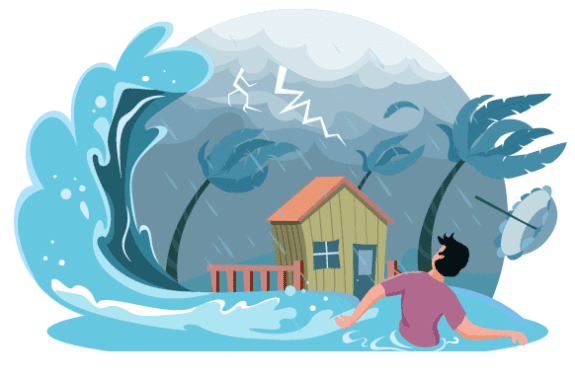Welcome to the Autumn 2023 edition of Rural eSpeaking.
We hope you find all the content in Rural eSpeaking to be both useful and interesting.
This issue is focussed on the effects of recent severe weather events, in particular the unwelcome visits of Cyclones Hale and Gabrielle, and how our readers in the rural sector can mitigate against the effects of these storms.
If you would like to talk further about any of the topics we have covered in this edition, or indeed on any other legal matter, please don’t hesitate to contact us. Our details are at the top right.
Severe Weather Emergency Legislation Act 2023



Assisting recovery and improving resilience
The severe weather events this year, in particular Cyclones Hale and Gabrielle, highlighted the need to amend some legislation to assist recovery and improve resilience for areas that have been impacted.
The Severe Weather Emergency Legislation Act 2023 is the government’s response to legislation that can be amended to improve emergency response and reduce regulation. Having come into force on 21 March, the Act amends these four statutes:
- Civil Defence Emergency Management Act 2002 (CDEM)
- Resource Management Act 1991 (RMA)
- Food Act 2014 (FA) and the Food Regulations 2015 (FR), and
- Local Government Act 2022 (LGA).
Civil Defence Emergency Management Act 2002
Amendments to the CDEM address issues relating to concurrent declarations of states of emergency and notices of transition periods, and how resources dedicated to emergency response are used.
Group recovery managers appointed under the CDEM are responsible for coordinating the recovery activity within the region they are appointed. The Act clarifies that they must not use their powers, in respect of resources, for the benefit of a current emergency response if it is contrary to the priorities of an ongoing transition period in the region.
Resource Management Act 1991
Changes to the RMA slightly reduce the level of red tape following significant weather events. These changes lower the level of notice required by an authority to enter land in response to an emergency, and increase the ability for owners or occupiers of land to conduct emergency work and preventative remedial actions. Cyclones Hale and Gabrielle, as well as the heavy rainfall in Northland, Auckland, Waikato and the Bay of Plenty, are listed as ‘severe weather events’ with areas impacted by these events being ‘affected areas.’
Formerly a local authority or consent authority entering any place to take an action to remove the cause of, or mitigate any actual or likely adverse effect, of an emergency, had to give notice to the occupier. This has now been modified so that the authority only needs to display a prominent notice on the land and, as soon as practicable, a notice containing the same details is to be served on the ratepayer.
Under the old legislation, the notice required a person who had undertaken emergency works, or preventive or remedial action, to give notice of that activity within seven days and apply for any appropriate resource consents within 20 working days (if the activity contravened sections 9, 12, 13, 14 and 15 of the RMA). These times are now extended to 100 working days and 160 working days respectively. The same extension has been applied where emergency work is undertaken under the CDEM via section 330C.These extensions will revert back to the previous timeframes on 1 April 2025.
Immediate preventive or remedial measures to avoid, remedy or mitigate loss, injury, detriment or damage caused by a severe weather event undertaken by an owner or occupier of rural land is now a permitted activity under the RMA.
However, any activity classified as a prohibited activity in a relevant plan, any applicable regulations or national environmental standards will not be a permitted activity. Written notice must be provided to the relevant consent authority within 60 working days after starting the activity and, if the requisite notice is not given, the permitted activity status is revoked from the date on which the notice period ends. This will end on 1 October 2023 and the previously listed activities will no longer be permitted by default.
These sections aim to provide short-term relief for rural owners and occupiers to begin remedial work after the recent severe weather events without having the requisite resource consent as long as they are not listed as prohibited activities elsewhere.
Food Act 2014 and the Food Regulations 2015
Under the FA and FR, a food business is a business, activity, or undertaking that trades in food, whether in whole or in part. The FA and FR apply to food for sale as well as food-related accessories.
The Act acknowledges that compliance with the FA and FR registration and verification requirements may not have been possible for some food business owners during recent severe weather events in Northland, Auckland, Waikato, Bay of Plenty, Gisborne and Hawke’s Bay and the districts of Tararua, Masterton, Carterton and South Wairarapa (collectively referred to as ‘affected areas’).
If a food business in an affected area had their registration expire, or their registration is due to expire, between 8 January and 16 May 2023, they are provided with an extension for registration until 16 May 2023. A food business owner may continue to operate beyond this period provided they have paid the required fee for renewal of their registration.
Under the amended FR, food business owners in an affected area that were due to comply with regulations 87(1), 88(1) or 90 between 8 January 2023 and 16 May 2023 and regulations 91(1), 92(1), 93(1) or 94 between 8 January 2023 and 16 August 2023 are now exempt from doing so. However, if an operator of a food business benefits from an exemption they must resume compliance when they are next required to so in accordance with the FR.
Local Government Act 2002
Local authorities may amend existing long-term plans (being plans for the period 1 July 2021 to 30 June 2024) to include matters relating to water services so that they may respond to the damage that has been caused to water infrastructure as a result of Cyclone Gabrielle.
Local authorities and Civil Defence Emergency Management Groups now may also meet by audio or audiovisual link.
There is a great deal to digest with these changes; if you have any queries or need some help, please don’t hesitate to contact us.
DISCLAIMER: All the information published in Rural eSpeaking is true and accurate to the best of the authors’ knowledge. It should not be a substitute for legal advice. No liability is assumed by the authors or publisher for losses suffered by any person or organisation relying directly or indirectly on this newsletter. Views expressed are the views of the authors individually and do not necessarily reflect the view of this firm. Articles appearing in Rural eSpeaking may be reproduced with prior approval from the editor and credit being given to the source.
Copyright © NZ LAW Limited, 2021. Editor: Adrienne Olsen. E: adrienne@adroite.co.nz. M: 029 286 3650. ISSN 1174-2658 (Print) ISSN 2744-3973 (Online)
View more articles
